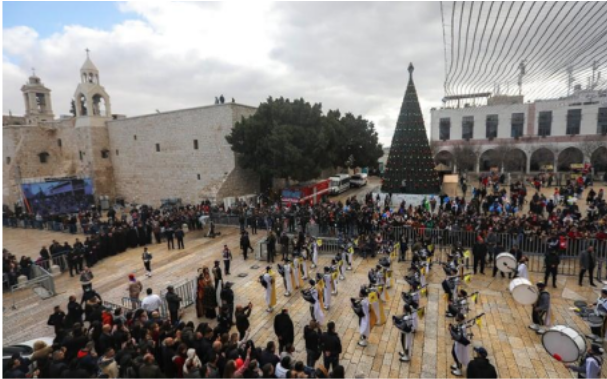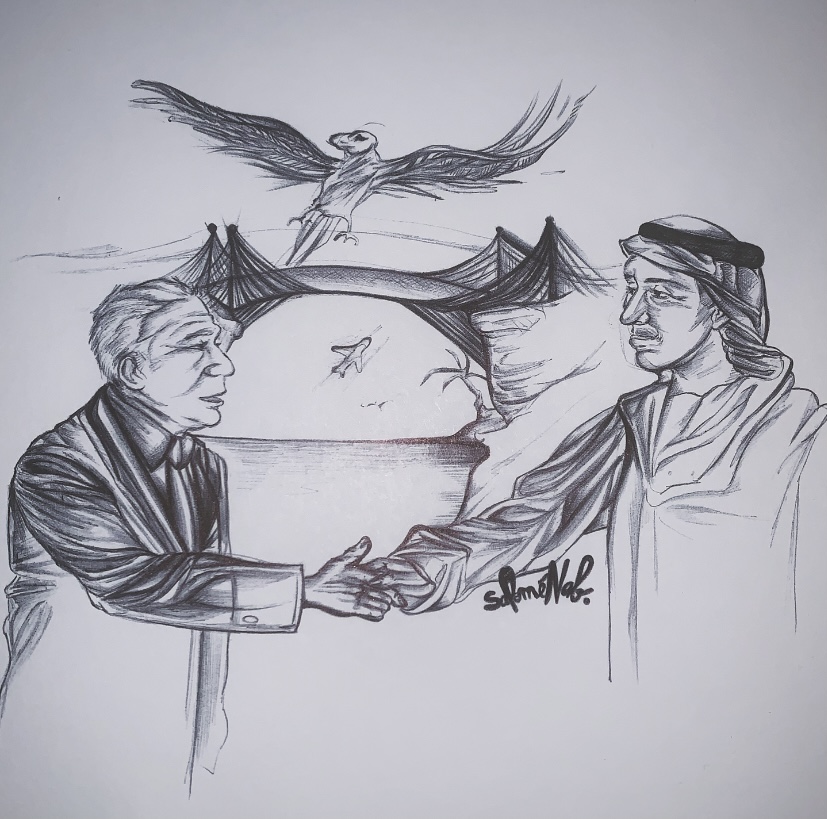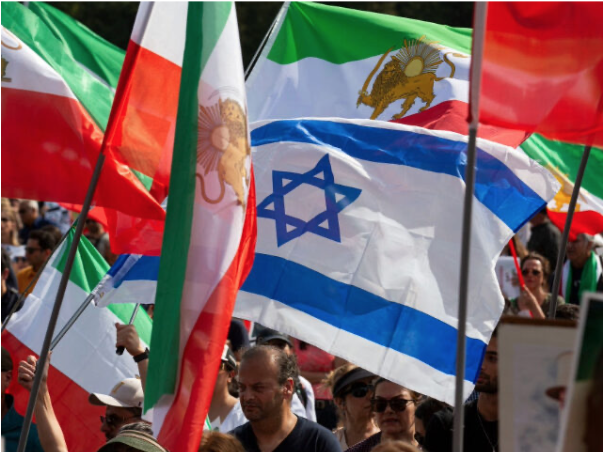
Audacious hope for human fraternity
For decades, we have been witnessing the rise of religious extremism and intolerance in all societies and faiths. The values of pluralism, mutual respect and diversity of religions and beliefs are the foundation of peace and the cement of our human family. Yet all over the world, these values are being violated. Political divide, growing inequality, hate rhetoric, sectarianism and increasing conflicts are at stake.
More than ever, we need to remember that dialogue between all religious groups can help to raise awareness and understanding of the values shared by humanity. In this context, it is necessary to encourage initiatives designed to promote dialogue between religions and cultures, in order to strengthen peace, social stability and mutual understanding, and thus foster human fraternity.
A model of interfaith harmony
In 2010, the United Nations General Assembly proclaimed World Interfaith Harmony Week, celebrated each year on the first week of February, as a means of promoting harmony between all religions, beliefs and faiths. On December 21, 2020, the International Day of Human fraternity is established through resolution 75/200, which was adopted unanimously and was supported by Egypt, Saudi Arabia, the United Arab Emirates,Equatorial Guinea, Morocco, Burkina Faso and Venezuela. Member states are invited to include this celebration in their calendars from 2021.
This Day took place for the first time on February 4, 2021, and celebrates the values of compassion, religious understanding and mutual respect that guarantee peace. It is founded on the adhesion to the principles of freedom, justice, democracy, tolerance, solidarity, cooperation, pluralism, cultural diversity and dialogue at all levels of society and between nations, in a national and international environment that fosters peace and guarantees the rights of all, especially the poor, disabled and needy.
The importance of religion
"No one saves himself alone »
Cardinal Parolin, Secretary of State of the Holy See in the first World Meeting on Human Fraternity on June 10, 2023 in St. Peter's Square, Rome.
Religions have a decisive responsibility in the coexistence of peoples. In order to serve fraternity, they need to dialogue with one another, to get to know one another, to enrich one another and to deepen what unites them. Different religious traditions, each drawing on its own spiritual heritage, can make a major contribution. Indeed, if we can demonstrate that it is possible to live our differences in fraternity, we will gradually free ourselves from fear and mistrust of others who are different from us.
Religious leaders have taken action to promote interfaith and intercultural dialogue. A meeting took place on February 4, 2019 in Abu Dhabi between Pope Francis and the Grand Imam of Al-Azhar, Ahmed el-Tayeb,, at the end of which the document entitled "Human Fraternity for World Peace and Common Coexistence"was signed.
This Document, in line with previous International Documents that have highlighted the importance of the role of religions in building world peace, is an invitation to reconciliation and fraternity between all believers and non-believers.It advocates the values of tolerance and fraternity promoted and encouraged by religions, and symbolizes the embrace between East and West.
By handing it over to the authorities, influential leaders and civil society organizations, the Catholic Church and Al-Azhar promise to ensure that it becomes an "object of research and reflection" in all schools, universities and educational and training institutes, to help create new generations who will bring goodness and peace.
In France, the "Fraternité d'Abraham" association was one of the consequences of the Second Vatican Council (1962-1965), called by Pope John XXIII. Indeed, the "Nostra Aetate" declaration of October 26, 1965 recommended that Christians learn about Judaism and respect each other, and also opened the Catholic Church to inter-religious dialogue with Islam. It was founded on June 7 1967 at the Paris mosque on the initiative of writer André Chouraqui, Father Danielou, and later joined by Father Michel Riquet, mosque rector Si Hamza Boubakeur and man of letters Jacques Nantet.
"The Fraternité d'Abraham", whose name refers to the father of the three monotheistic religions known as Abrahamic, was the founder of the friendship between the communities and has played an important role, either directly or through its members, in the development of inter-religious dialogue in France, particularly after the 1991 Gulf War, but also in Europe and internationally. In 2004, together with the LICRA, the CRIF, the Consistoire and the Rabbinate, it set up the "Amitiés Judéo-Musulmanes" (AJMF) process, which federates numerous groups in France committed to this dialogue.
Brotherhood in the three monotheisms.
"Knowledge is the first step in building bridges with the other".
"Love one another, as I have loved you" (John 13). Jesus' life is an example and a call to brotherhood. Born a Jew, He invites His companions to a new universal brotherhood, founded on the unicity of God, the Father of all, and His benevolent design for all humans. By his resurrection, Jesus has become," says Paul, "the eldest of the multitude of brothers. There is no longer male or female, slave or free, Greek or Jew (Gal. 3:28): this is Abraham's heritage. To teach us to love one another as brothers, Jesus teaches us to see these remaining differences not as oppositions, but as richness to be shared.
" Am I my brother's keeper?" is Cain's reply to the Lord, when he asks about Abel (Gen 4:9). According to Judaism, brotherhood is not innate, it has to be learned. We have to condition ourselves to overcome hatred, to transmute it into love, as in the story of Joseph and his brothers. This love of others, which leads to a feeling of brotherhood, is inclusive in Judaism, whatever the degree of religious practice or knowledge of the Torah.
The Lord offers the Hebrew people the Ten Commandments, which remain the foundation of Judaism to this day, and which govern the relationship between man and God, and between man and his fellow man. Love of others thus becomes one of the factors in our communion with God. Love of the Creator and love of creatures are inseparable.
"He has not attained the fullness of faith who sleeps sated while his neighbor is hungry" (Prophet Muhammad).
Brotherhood is also enshrined in the maxims of the Prophet Muhammad. The Koran explains that all believers are brothers, and that they must seek to live in peace and justice. First and foremost, it revolves around the central notion of divine unicity (Tawhid). God has created a single humanity, from one same soul. There can be no brotherhood without the effort of getting to know one another. Knowledge is the first step in building bridges of mutual respect. Fraternity is the result of a commitment, of a sustained effort to recognize the other (his person, his life, his rights, etc.).
The International Day of Human Brotherhood is part of a drive that requires each and every one of us to strengthen our ability to engage in dialogue with others, in order to get to know and accept each other better. We share a common origin and descent, and a common destiny. The "faith of Abraham the believer" appears today as a ferment of peace and mutual aid, capable of arousing enthusiasm and generosity in the service of all truly human causes. Jews, Christians and Muslims have decided to join forces to become aware of everything that has made up their common spiritual and cultural heritage since Abraham, and to work together for the effective reconciliation of all those who today represent Abraham's descendants, with the aim of freeing the world from the evils of hatred, fanatical violence and pride of race and blood, by revealing the authentic and divine sources of a fraternal humanism.
Sources:
https://www.un.org/fr/observances/human-fraternity
https://www.fraternite-dabraham.com
http://www.fraternite-dabraham.com/wp-content/uploads/Revue-153.pdf



